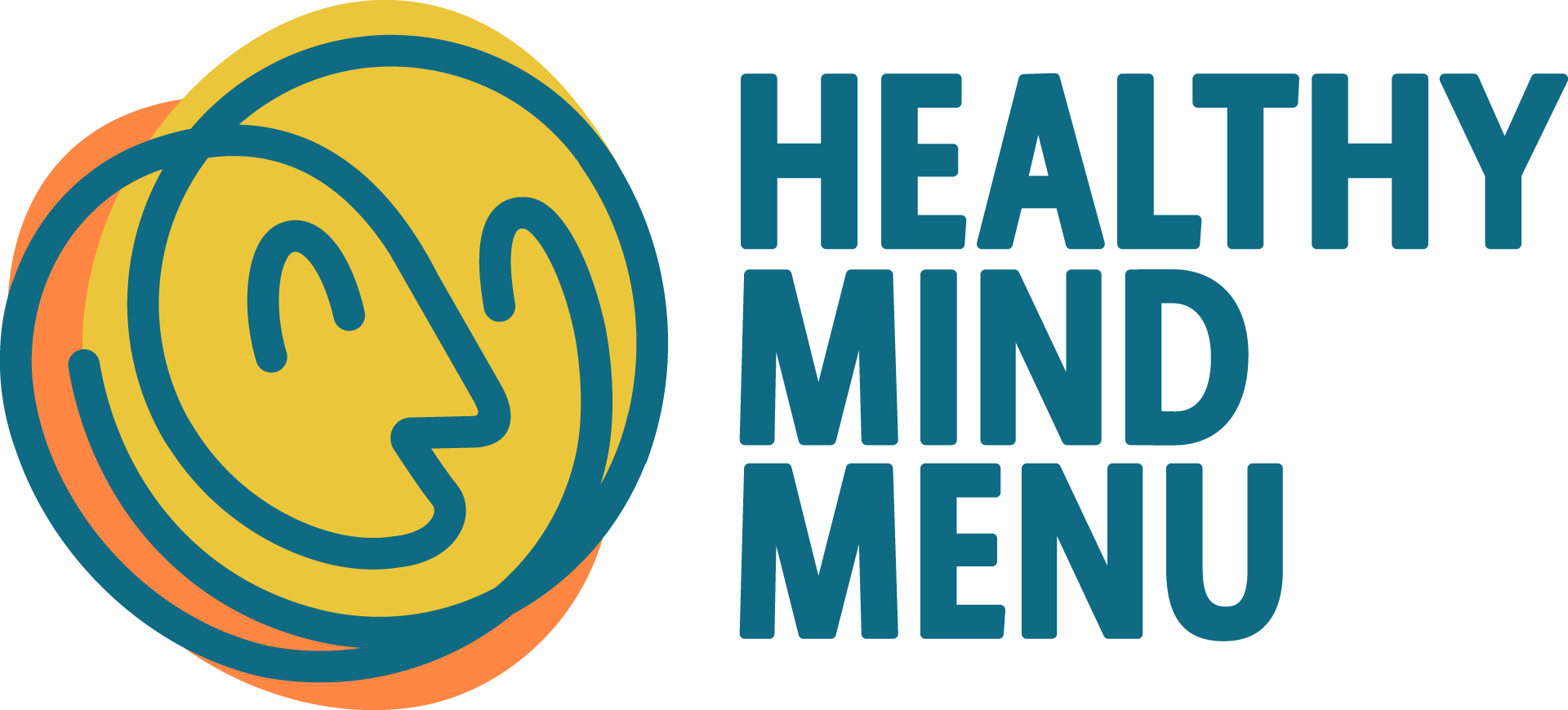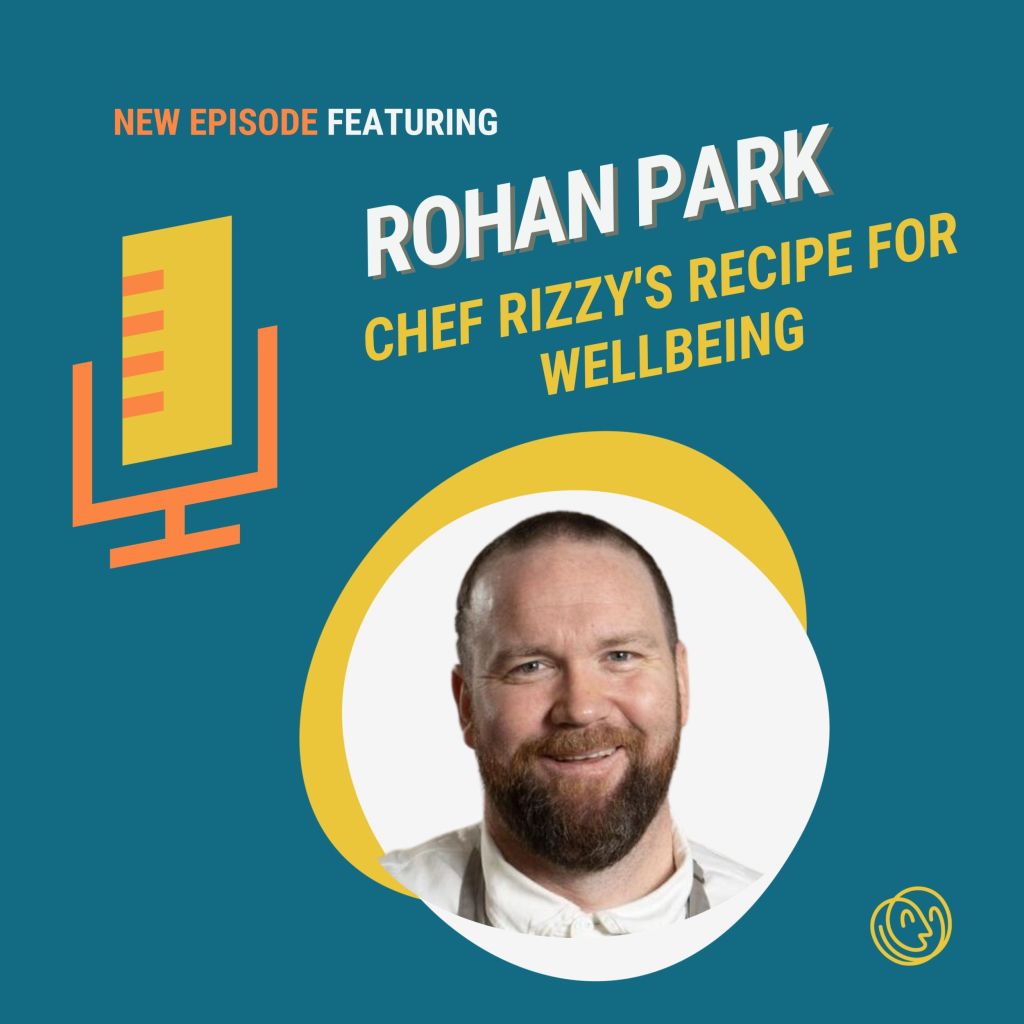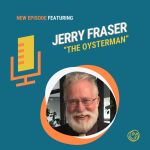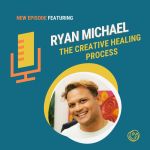Back of House, Front of Mind
“Back of House, Front of Mind” is a podcast presented by Healthy Mind Menu, an industry-led initiative that aims to improve the lives and normalise conversations around mental health for those working in the hospitality industry.
Welcome, Rohan Park
West Australian born Rohan Park spent his early years living and schooling across WA before basing himself in the south west. Although coming from a long line of chefs and food industry professionals, he first tried his hand in mining and viticulture before following his roots into the hospitality industry.
Starting at the ground floor Rohan worked his way up through the ranks at several well known wineries in the Margaret River region before qualifying and finding his own feet. His keen interest in native ingredients and foraging led him to Paul Iskov and Stephne Pronk and he joined Fervor in 2016. The three year stint with Fervor allowed Rohan to travel across the country providing a unique dining experience in some of Australia’s most breathtaking locations. During this time, his passion and understanding of native ingredients strengthened and grew.
After moving to Perth, Rohan joined The Royal Hotel’s powerhouse team to open its fine dining restaurant Fleur. Fleur opened in February 2020 offering seafood-focused tasting menus inspired by Japanese techniques and native Australian ingredients. Within the first two years, Fleur received many accolades including WA Good Food Guide’s Best New Restaurant and AHA Restaurant of the Year, and received two chefs hats from the Australian Good Food Guide.
In 2021, Park joined forces with Old Young’s Distillery’s founder James Young to create the company’s first hospitality venture, Old Young’s Kitchen. The restaurant and bar were designed to complement the existing tasting room with the team setting out to elevate the face of drinking and dining in the Swan Valley.
Tell us how you spend your days.
At work, on a regular day see the morning setup of the kitchen, the day-to-day prepping of menu items, then the peak of service to get the team across the line at which point it comes time to put my executive chef hat on and get stuck into the admin side of the job over the remaining sunlight hours.
At home, my day sees me waking up and having breakfast with my partner and child, depending on the day going to swimming lessons or soccer practice with my son and then fatigue allowing, I do at least once a week try to put some extra effort into a special dish for dinner for our family meal to sit down to.
Can you tell us about your career and how you got to where you are today?
I started from the ground up at a winery in the southwest as a kitchen hand and very quickly moved through the ranks. Although I could have continued through my career without a trade qualification I still trained in the culinary arts at Margaret River TAFE if not for the respect of my peers and the extra money in my pay packet each week but more so for the sense of accomplishment and self-worth.
Explain the reasons why mental well-being has become important to you.
I’ve always just soldiered on in life and taken things in stride. It wasn’t until a fairly serious car accident in my mid-thirties that I really suffered and began a mental health regime visiting a psychologist (Nicola Mitchell) once a week for a number of years. It was at this point that the work I was doing on myself made me much more aware of trauma both in and outside of the workplace and what a serious effect it can have on people and life.
How do you prioritise self-care and balance it with other responsibilities in your life?
I spend time meditating. When I am going through more difficult stages in life I revisit my psychologist or even more simply on a baseline level just talk to my partner or colleagues and not allow myself to be afraid of stigma surrounding the subject matter of said conversation. I feel normalising these conversations in day-to-day life and in workplaces needs to happen to allow for the growth of a healthy and happy industry in the future.
Can you tell us about a person who has had a significant impact on your life?
My partner! She definitely helped me in taking steps toward working on myself and then once making that jump it was my psychologist Nicola Mitchell who really helped me see things through a different lens and understand how I can achieve a healthier mind and in turn body, relationships, and life.
What is something you’re currently working on that you’re excited about?
I get really excited about working with charities whether it be Healthy Mind Menu, Starlight Foundation, or the Fremantle Dockers Purple Hands Foundation. My passion, as well as food, is helping others and educating people.
If you could simplify your philosophy on life, how are you living? What do you tell yourself each morning when you wake up?
Each day I try to be a better version of myself than the day prior. The Chinese say you don’t reach perfection until the day of your death. I don’t want to be perfect but if I can be a better and healthier me every day then I am moving in the right direction.
How do you approach goal setting and achieving success?
Goals and dreams are similar and necessary for life. I used to have to be forced to take holidays for example and it was my psychologist who made me change this and forced me to take at least one international holiday a year to give myself something to work towards. She also taught me about boundaries, about putting your phone on do not disturb on your days off, not answering that call or that email even though your mind is telling you it’s just one response that will take 5 seconds to make. The point is that once those boundaries are there and in place your friends and colleagues are more likely to respect your personal time.
How do you inspire well-being in those around you?
I try to vocalise mental health, coping strategies, and practices around well-being without being too much of an overzealous martyr of course. There is a fine line between promoting or advocating well-being and forcing it down someone’s throat. Some people are willing and eager to talk or learn. Some people are at that stage in life and aren’t or maybe won’t ever be willing to come along on that journey and you have to be ok with that not offended or hurt by lack of reciprocation.
What does healthy hospitality mean to you?
Healthy hospitality to me means waking up happy wanting to go to work and going home happy every day. Enjoying the time that we spend at work and enjoying the people that we work with. After all, our workplace is where we spend the majority of our life, if we can’t feel good, safe, comfortable, and happy at work then there is a broader underlying issue, and therefore ‘healthy hospitality’ is not only nonpresent but most likely swept under the rug and forgotten about.
Tell us about your organisation and what you do.
I work for a company called Old Young’s Distillery and I am the back-of-house representative of our hospitality branch Old Youn’gs Kitchen. We work out in the picturesque Swan Valley doing mostly day shifts with all of our staff actually doing the number of hours set out in their contract. We also pay very competitively and part of our hospitality mantra is nurturing our team and building this premise and process of what we believe we can achieve as ‘hospitality 2.0.“
How does your work support individuals to be healthy and thrive?
On many levels. I have one staff member who even being in hospitality makes time in the roster for them to fulfill their religious requirements on a Sunday every month. On the other hand, though we try to allow sporting requirements to be filled and we actually give days in lieu that are useable! That is a big one for me. In so many venues I have heard about these mystical days in lieu but never got to utilise them. At Old Young’s Kitchen management is encouraged to expend all days in lieu within one month of accrual. We also strongly promote family. If someone has to go early once a month to go to their child’s sporting event or has a wedding or family engagement to attend in peak periods of work we will always do our best to and nine times out of ten achieve in building the roster around that employees need.
Employers and managers play a crucial role in creating supportive workplaces. What advice would you give to them to be proactive in addressing issues and fostering a culture of support and understanding?
Listening. My professional mentor is always telling me to listen more. People want to be heard and more often than not they are not given that opportunity. One can’t simply ignore a problem and have it go away. We already know this. Issues however may be right there on the surface staring us in the face but until you allow an individual the chance to be heard these issues may never be realised let alone resolved until it is too late.
For someone who suspects that a friend, family member, or colleague may be struggling, what advice or steps would you suggest they take to approach the situation in a supportive and non-judgmental way?
I have a lot of people approach me when they are not doing well. It seems stupidly simple and passé but my first go-to is asking them if they are okay, more often than not it will be shrugged off, and responded with yeah I’m fine chef, then I repeat the question and listen to what they have to say. It is usually then when prompted to be heard that someone will allow themselves to be more vulnerable and divulge what is on their mind. I will always offer my psychologist’s services and upon telling her they have been referred to by me she will always do her best to get them in for a consult immediately. Above that outside of the norm, I give Nicola full consent to use my information brought up in personal sessions with her especially when it is another hospitality worker I am recommending her to. The truth is a lot of hospitality members have sought out help before but unless that mental health provider has a background or insight into hospitality itself it can be hard to relate to your therapist and consequently end your wellbeing journey early before the benefits have been received.





